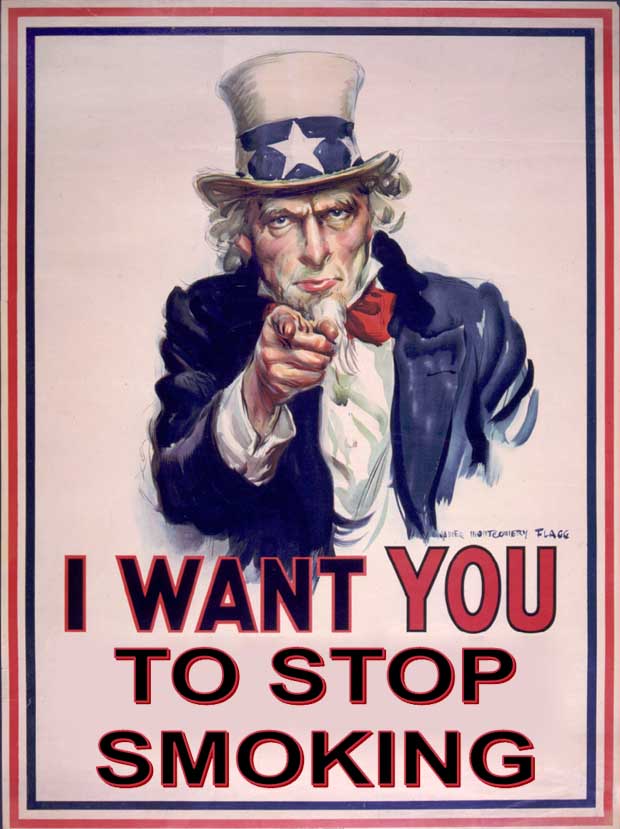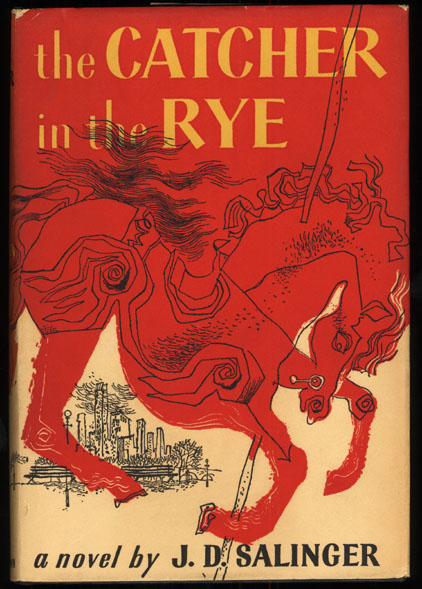Welcome to the Nanny State, Ladies and Gentlemen
In the last two years, three states have proposed legislation banning body sprays and other perfumes and colognes from public schools, due to the fact that a small number of students have allergies to such things. Sadly, this indicates that the war on substances I’ve been ranting about for years now is still in full swing, and has targeted the very substance I predicted it would in my 2003 rant, "A Small Victory of Common Sense over the War on Substances."
 | | Tag Body Spray: You've Been Warned |
The logic is simple: if cigarette smoke can be banned from all public spaces in many states, due to the supposedly adverse effects of second-hand smoke (a claim I question in my aforementioned rant), then why can’t perfume, cologne, and body sprays be banned too? If this works, we’ll move on to other things that are potentially harmful to the populace, like peanuts (peanut allergies are so bad that even breathing in the smell of them can cause violent attacks in some people) and nail polish remover. And heck, when the global warming advocates start running out of ideas, I’m sure they’ll try to sue SUV manufacturers for polluting the air we breathe, citing their own EPA meta-analysis studies that list the ill health effects of automobile-polluted air.
You probably think I’m overreacting, just like many of my readers thought I was overreacting way back in 2000 when I argued that it wouldn’t be long before somebody tried to sue McDonalds because an addictive cheeseburger made them fat. Heck, people thought I was overreacting when I thought cigarette bans would lead to perfume bans, and I think we can all see how good my batting average is so far.
 | | This is the new patriotism |
Yes, proposing legislation to ban body sprays in public schools seems like a far cry from banning them in all public spaces, but this is how these things get started. With enough time, money, momentum, and propaganda, an advocate can convince a majority that something is bad for them, and then, come election time, they can propose legislation in the form of a state constitutional amendment to banish it from public life. That’s exactly what has happened in most states when it comes to cigarettes, and it may come to that with body sprays someday too.
Why is this a problem? First off, this is supposed to be a free country. Secondly, we are not—I repeat, not—a flat-out democracy. We are a representative democracy, and we are supposed to look out for the rights and wants of the little guy. That’s what those enumerated concepts called the Bill of Rights are supposed to be about. Banning cigarettes in public spaces because a fickle majority of people has been duped by propaganda is, quite simply, the oppression of the masses. It’s groupthink fascism, and I’m tired of it, even though I quit smoking years ago.
You think it just extends to cigarettes? You don’t think freedom of speech itself is under fire as a result of this kind of thinking?
Consider this story, then. In Lancaster, Pa., a kid recently filed a freedom of speech federal lawsuit against his school because they punished him for wearing a shirt with a gun on it. The shirt in question was of a military sidearm, and the kid wore it to honor his uncle in Iraq. The reasoning, according to the school, is that an image of a gun is a threat in such sensitive times, as a result of recent school shootings and such.
 | | Doom: Just look at that cover--it must be as evil as second-hand smoke |
Speaking of school shootings, remember Columbine? Not only did Michael Moore attempt to use the massacre as a personal soapbox to declare his desire to repeal the Second Amendment, but many also tried to ban the video games and movies the shooters took inspiration from. They wanted to make the games Doom and Wolfenstein 3D illegal, because they were dangerous video games that could cause mental damage to children who played them, along with movies like The Basketball Diaries and Natural Born Killers, which could make children desensitized killing machines despite both movies’ very clear messages against sensationalism, violence, and overall naughty behavior.
Regardless of the obvious threat to liberty such ideas pose, the puritanical streak in our collective consciousness has banned many works of art—literature, film, music, and otherwise—from schools, libraries, and many other public spaces because they are deemed dangerous. Such “vague Orwellian policies” (the Lancaster kid’s parent’s words, not mine) threaten to stifle not only freedom of speech but free thought, two things we’re supposed to value in this country, right alongside the liberty to do what we want as long as we aren’t violating the rights of others.
Lest you think this trend of Americans attempting to ban things they think are bad is a new phenomenon, I’d like to remind you of a long and sad history of censorship and prohibition. After The Catcher in the Rye was published back in 1951, many schools and libraries banned it, because the ideas, concepts, and obscenities in the book are a threat to the fragile minds of young people. Many more books, films, and music were banned around that time as a result of McCarthyism and other paranoid political movements, and even earlier than that, in 1930, the classic Voltaire novel, Candide, was seized by U.S. Customs for its obscenity. You can trace the roots of censorship in America all the way back to John Adams’ Sedition Act of 1798, which tried to prohibit all speech and literature designed to resist or oppose any law. Luckily, Thomas Jefferson let the act expire three years later, but such ideas have persisted in politics to this day.
 | | Surely free speech wasn't intended to protect one of the four horsemen of the apocalypse |
People tried to make rock music illegal, too, because it supposedly promotes sex, drugs, and even Satan worship. And it’s loud, too, which is equally horrific to the nannies of this country.
In 1949, in an effort to bring “balance” to political speech, the FCC installed the Supreme Court-approved Fairness Doctrine, which regulated news and other broadcasts, requiring things like notifications a week in advance before a personal attack on the air, manditory inclusion of two sides to any important political debate, and other equally outrageous things. Luckily, in 1984, the Supreme Court finally came to terms with the actual meaning of the first amendment, and the Fairness Doctrine was eliminated. Once again, however, many modern lawmakers, bitching about media bias, are trying to reinstate various iterations of that unconstitutional law.
How is all this related to body sprays? It’s all part of the nanny state, a fantasy land where people have a right to not be offended in any way. It’s a place of political correctness, boring music, no dissent, bad-tasting food, no foul language, and certainly no smoking. We’re a lot closer to the nanny state than you probably think.
People can clearly take it too far. Remember the guy who went to the California State Supreme Court because he wanted the word “God” taken out of the pledge of allegiance? He thought it violated his right to not be offended, a dubious right that leads directly to the nanny state.
 | | This guy, Billy Parrot, is only ACTING like he's smoking (AP) |
And that’s the problem. We’ve become so whiny in this country that we have to stick out our pouty bottom lip and stamp constitutional bans on things we don’t like. All cigarettes have been banned from almost all public spaces, even bars, because a bunch of us don’t like cigarette smoke.
In Minnesota, bar owners struggling to make ends meet as a result of the state’s new cigarette ban have had to start having “theatrical” nights, where patrons come in pretending to act in order to exploit a loophole in the ban that allows for theater performers to smoke on stage. The obvious logic of avoiding smoke-filled bars escapes the nags and nannies of this country, though, as they have clearly not been satisfied by separate smoking sections in restaurants and a flat-out prohibition of cigarettes in airplanes. I’m sure the loophole being exploited so deliciously in Minnesota will soon be closed, because I don’t think they’ll be happy until cigarettes themselves are wiped off the face of the planet. By then, though, they’ll have moved on to the peanuts.
-e. magill 03/17/2008
|
|